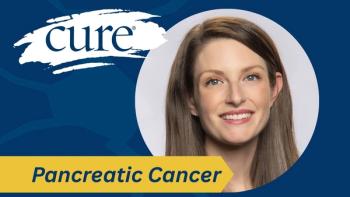
A Pancreatic Cancer Survivor Wonders What’s Next?
Patients with cancer are all too familiar with the question, what's next? One cancer survivor discusses how to navigate those answers.
I don’t think anyone who has faced cancer of any sort ever stops wondering, what’s next? We hope it’s in our rearview mirror but dread it’s not. Not wanting to be labeled a “worrier”, we don’t tell a soul about our “private” terror our cancer will yet knock us in the dirt both figuratively and literally. Being a six almost seven-year pancreatic cancer survivor, when most don’t see two, I know.
Back then we had been living our lives going to work and trying to make it to our kid’s deals and then wham. A call from our doctor about something “unusual” on our scan knocks us out of the air like a bird gliding through the air flies into a large plate glass window it didn’t see coming. Surgery, chemo, radiation and treatment follow in quick succession.
But how do we handle this nagging question of what’s next?
Ask About The Next Steps
When I’ve asked my oncologist what’s next, like a skilled politician, she hedged her words with, “nobody knows.” When you’re trying to plan what life you have left this is not helpful, but I suppose I can’t blame her. After all, who wants to tell someone a snowball in Death Valley in mid-July has a better chance than you. Yet another doctor I see, who specializes in the pancreas, told me at six years I have less than a five percent chance of seeing my cancer come back. Once I got my primary care doctor, who has seen me for a couple of decades, to admit, “If you’ve done your bucket list, do it over” I found his words oddly comforting.
Know The Cancer Science
Cancer science evolves non-stop. New protocols and treatments are being developed and approved for use all the time. Whether we are starting our cancer journey, or in post-treatment, cancer science is not an exclusive members-only oncologist’s club. Even if it can be hard to understand the medical journal mumble jumble, our oncologist can help explain it to us. However we get there, we all need to know the cancer science.
Runaway From Junk Cancer Science
Good or bad there are a lot of as they coin themselves “holistic approaches” to treating cancer which offer pills and potions said to be a miraculous cure. Of course, all these approaches will point to random results but often these lack documented cause and effect proof. It’s not so much these approaches are unproven but with some aggressive cancers, they may waste valuable treatment time which can become a life or death matter. Runaway from junk cancer science.
Know Your Cancer
Every cancer has one or more organizations that focus on each type of cancer. For pancreatic cancer one of the main ones is the
On these organization’s websites, there is easy to understand information about the cancer they target and its various treatments. Some even provide patients with tailored advice based on their individual medical profiles. Go find the one(s) who focus on your type of cancer. I’ve used them and found them to be quite helpful. You should too. Know your cancer.
Don’t Let Your Emotions Get the Better of You
This is easier to talk about than to do.
Everyone has emotions. A person who is in the midst of treatment (as well as their caregivers) emotions often gush out. The endless treatments wear us out. We think, “Will this ever end?” or worse, “Will I make it?”
Questions like “What’s next?” lead nowhere. Thus, if you find yourself worrying non-stop seek help. Many clinics have counselors available who are trained in dealing with those of us and our caregivers who find ourselves losing it so to speak. A person cannot participate in their care or help us if they are a worry wreck.
Everyone Has Their Own Bus
Our friends who are not facing cancer all have their own proverbial bus too. We on the other hand can describe our bus in detail. I think mine has splashes of red paint. I can hear the gravel snaping beneath its weight as it creeps towards me. As Jim Morrison, of The Doors, is rumored once to have said, “No one gets out of here alive.”
Cancer can be a blessing, offering the opportunity to tie up life’s loose ends, or it can be a curse knowing things are coming undone faster than we can tie them together. Despite talk otherwise, we choose how we respond to our cancer.
Even though I wonder what’s next, I’ve come to realize the answer to this most basic question is unknowable. I’ve come to understand I need to live each day as though it is a gift—because it truly is.




